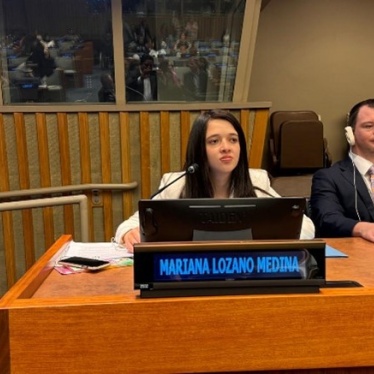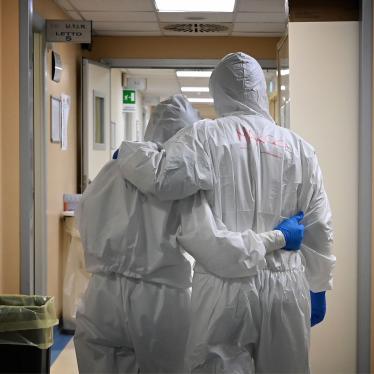“The world’s 1 billion people with disabilities are largely invisible when it comes to HIV prevention, education, treatment, and counseling,” said Shantha Rau Barriga, senior disability rights advocate and researcher at Human Rights Watch. “To ensure effective programs, people with disabilities need to be included, beginning with the design of HIV services all the way through to the evaluation phase.”
People with disabilities face a range of barriers that limit their access to HIV prevention and treatment. They are often excluded from sex education and sexual health services because they are wrongly assumed not to be sexually active. Information is rarely provided in formats easily understood or used by people with mental and intellectual disabilities, or with hearing and visual impairments.
“People look at disabled people and think, ‘They don’t have sex’,” said John Meletse, a South African disability advocate who is deaf, gay, and living with HIV. “But it doesn’t matter if you’re gay, straight, or bisexual, …we can be infected by HIV,” said Meletse in a new video released by Human Rights Watch today.
“With new advances in science there is hope for a world without AIDS, but without providing accessible HIV prevention and treatment for the 1 billion people with disabilities around the world, we won’t be able to achieve that goal,” Barriga said.
Human Rights Watch will highlight the intersections between HIV and disability rights at the International AIDS Conference. Medi Ssengooba, Finberg fellow at Human Rights Watch, will present at a workshop on creating disability-inclusive HIV policies and programs on July 23 at 2:30 p.m., and Rebecca Schleifer, advocacy director, will participate in a panel on HIV, disability, and the Convention on the Rights of Persons with Disabilities (CRPD) on July 26 at 2:30 p.m.








